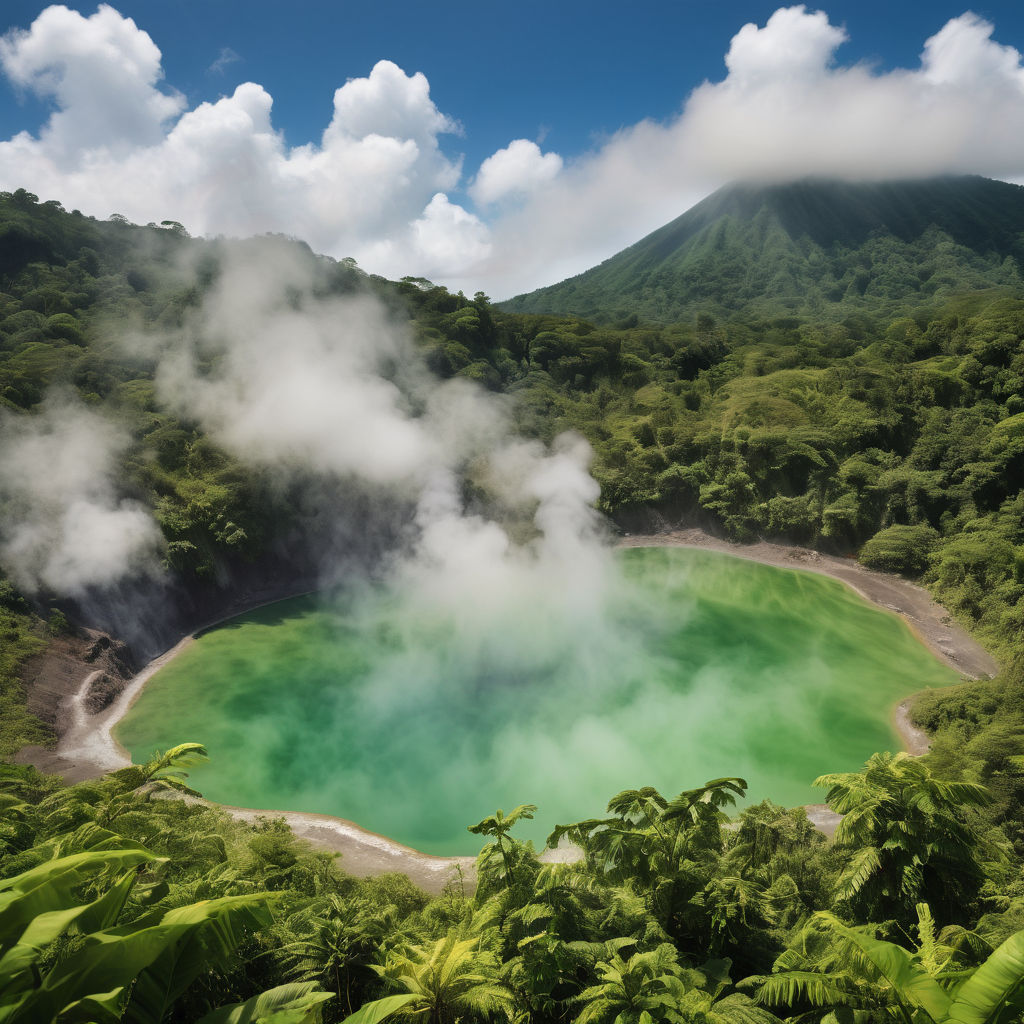Introduction to Dominica: The Nature Isle of the Caribbean
Exploring the Natural Beauty and Cultural Heritage of Dominica

Introduction to Dominica
Dominica, often referred to as the "Nature Isle of the Caribbean," is a small island nation located in the Lesser Antilles archipelago. It is situated between the French islands of Guadeloupe to the north and Martinique to the south. Dominica’s capital city, Roseau, is nestled along the southwestern coast and serves as the primary hub for cultural and economic activities. The island is renowned for its lush, mountainous landscape, hot springs, and vibrant rainforests, making it a haven for ecotourism and nature enthusiasts. Dominica's cultural heritage is a rich tapestry woven from the influences of its indigenous Kalinago people, African heritage, and European colonial history.
Cross-national and Cross-cultural Understanding
Dominica is characterized by its warm hospitality and openness to different cultures. The people of Dominica, known as Dominicans, generally perceive and engage with other cultures in a positive and inclusive manner. This openness is partly due to the island's colonial past, which has exposed Dominicans to various cultures over the centuries. Additionally, the presence of a large diaspora has fostered a global outlook among the local population. Significant cultural exchanges and educational programs play a crucial role in promoting cross-cultural understanding. The island hosts several cultural festivals, such as the World Creole Music Festival, which attracts visitors from around the globe and celebrates the island's rich Creole heritage. Educational institutions in Dominica, such as Ross University School of Medicine, bring in a diverse student body from various countries, further enhancing cross-cultural interactions. International partnerships and exchanges, particularly in the fields of education, health, and environmental conservation, also contribute to a broader cultural perspective among Dominicans.
Interactions and Social Dynamics
Interactions between Dominicans and foreigners are generally marked by friendliness and mutual respect. Social behaviors in Dominica emphasize community, family, and respect for elders, which extend to how they treat visitors and expatriates. The communication style is typically warm and informal, with a strong emphasis on face-to-face interactions. Language plays a significant role in facilitating these interactions. English is the official language of Dominica, but French Creole (Kwéyòl) is also widely spoken, reflecting the island’s historical ties to France. The multilingual nature of the island aids in bridging cultural gaps and enhances communication with French-speaking neighbors and tourists. Social norms include a strong sense of community support and cooperation, which is often extended to newcomers, making it easier for foreigners to integrate into local society.
Views on Dating and Relationships
Dominicans generally have progressive views on dating and relationships with foreigners, influenced by the island’s history of cultural diversity and openness. Cross-cultural relationships are common and widely accepted, with many Dominicans embracing the opportunity to learn from and share experiences with people from different backgrounds. However, cultural expectations and traditions still play a role in dating practices. Family approval is important, and relationships are often viewed through the lens of long-term commitment and community acceptance. The close-knit nature of Dominican society means that relationships, especially those involving foreigners, can be subject to community scrutiny. Nevertheless, the overall acceptance of diverse cultural backgrounds fosters an environment where cross-cultural relationships can thrive.
Marriage and Family
Marrying foreigners in Dominica is a common and accepted practice, reflecting the island's inclusive nature. Legal considerations for marriage involve standard procedures such as obtaining a marriage license and adhering to residency requirements. Dominica's legal system, based on British common law, provides a clear framework for marriages, including those involving foreign nationals. Family plays a pivotal role in Dominican society, and this extends to cross-cultural marriages. Families often provide significant support to couples, ensuring that cultural traditions are respected and upheld. Common practices in Dominican weddings include a blend of traditional and contemporary elements, often incorporating customs from both partners’ cultures. Cross-cultural marriages in Dominica bring together different traditions and practices, enriching the social fabric of the island. These marriages often result in culturally diverse households where children benefit from exposure to multiple languages and cultural perspectives.